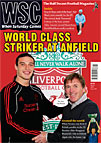 The Asian Cup in Qatar highlighted the strengths and weaknesses of football in the region. John Duerden was there
The Asian Cup in Qatar highlighted the strengths and weaknesses of football in the region. John Duerden was there
You had to feel a bit sorry for Qatar. Despite having over a decade to prepare for the 2022 World Cup after the events of December 2 in Zürich, the tiny nation in fact had just five weeks before it was put on the spot. On January 7, the 2011 Asian Cup kicked off in Doha giving an international media, one that needed no second invitation to demonstrate the extent of FIFA’s madness, the chance to scrutinise Qatar’s hosting capabilities/football culture/traffic and pretty much everything else.
Asia is a confederation of nine time zones, 46 members and wildly varying standards on and off the pitch. In Qatar, the football hit all points between dire and delightful, while the refereeing was below par from the opening weekend when Kuwait were on the receiving end of some poor calls, to the semi-final between Japan and South Korea when a penalty was awarded for a foul outside the area.
Japan made it through to face Australia in the final by playing slick attacking football, though some of the defending made for less pleasant viewing. The Socceroos were direct, physical, clinical and, in the words of Uzbekistan’s manager, “English” – fighting talk that annoyed the Aussies enough to thrash the Central Asians 6-0 in the semis. The final itself was a cagey affair settled in extra time by a spectacular volley from Japanese substitute Tadanari Lee playing in his only his second full international.
It didn’t go unnoticed that none of the Middle East teams made it to the semi-finals in a tournament held in their own backyard. This latest failure has reinforced the feeling that the region is falling behind the eastern powers. West Asia was without a representative at the 2010 World Cup for the first time since 1974, the Asian Champions League has gone east for the past five years and few of its players can be found in the big leagues.
Despite that, Saudi Arabia still shocked. Looking to reach a seventh final in eight tournaments, they imploded in impressive fashion, losing one federation boss, two managers and three games. It ended with a 5-0 thrashing at the hands of Japan.
Only 2,022 attended that match (the lowest crowd of the tournament), a symbolic figure not lost on anyone, but the Asian Cup has rarely been a well-attended event. The 2004 Chinese edition, which attracted average gates of 31,000, was an exception. The organisers complained about unused corporate tickets and it is true that Asian football fans are not always fans of the continent’s football despite the increasing levels of talent on display.
Perhaps they needed a fairytale story, like Iraq winning the title in 2007. That never really looked likely, however, and the defending champions fell foul of Australia in the quarter-finals while Iran exited at the hands of an exciting young South Korean team at the same stage. Dark horses such as Kuwait and UAE have potential but lacked the know-how to survive the first round. Hosts Qatar, led by Frenchman Bruno Metsu and his band of naturalised overseas stars, achieved their target of a place in the quarters, where they allowed a 2-1 lead against a Shinji Kagawa-inspired ten-man Japan turn into elimination.
It wasn’t all good news for East Asia. North Korea’s national team may now be the responsibility of the Dear Leader’s son Kim Jong-un, but they showed little of the spirit that shocked Brazil last June, failing to score a goal in their group despite a new 4-4-2 formation. Rumours of dressing-room disharmony from before the tournament were not dispelled on the pitch. China flattered to deceive before heading home at the earliest opportunity.
With no South-East Asian teams involved, India, led by Englishman Bob Houghton, flew the flag for the southern regions and they didn’t do as badly as expected. All three games were lost but “only” 13 goals were conceded – a figure that would have been acceptable before it all started. It would have been worse but goalkeeper Subrata Pal emerged as one of the stars of the group stage.
It was the big-name players that impressed the most however. The likes of Park Ji-sung, Makoto Hasebe, Harry Kewell (the former crock playing all six games), Keisuke Honda, Mark Schwarzer, Lucas Neill and Server Djeparov all showed their worth. This tournament did little to dispel the doubts that Qatar has what it takes to host the World Cup. It never could. When 2022 rolls around, however, the 2011 Asian Cup will at least help the world remember what the fast-changing nation used to be like.
From WSC 289 March 2011